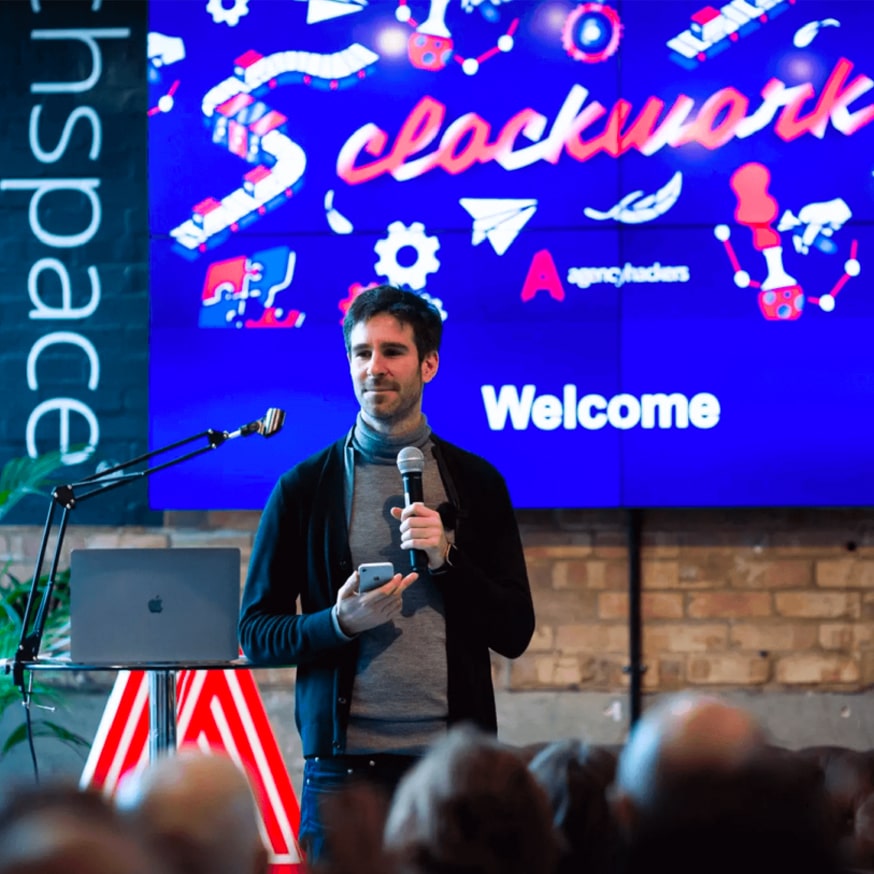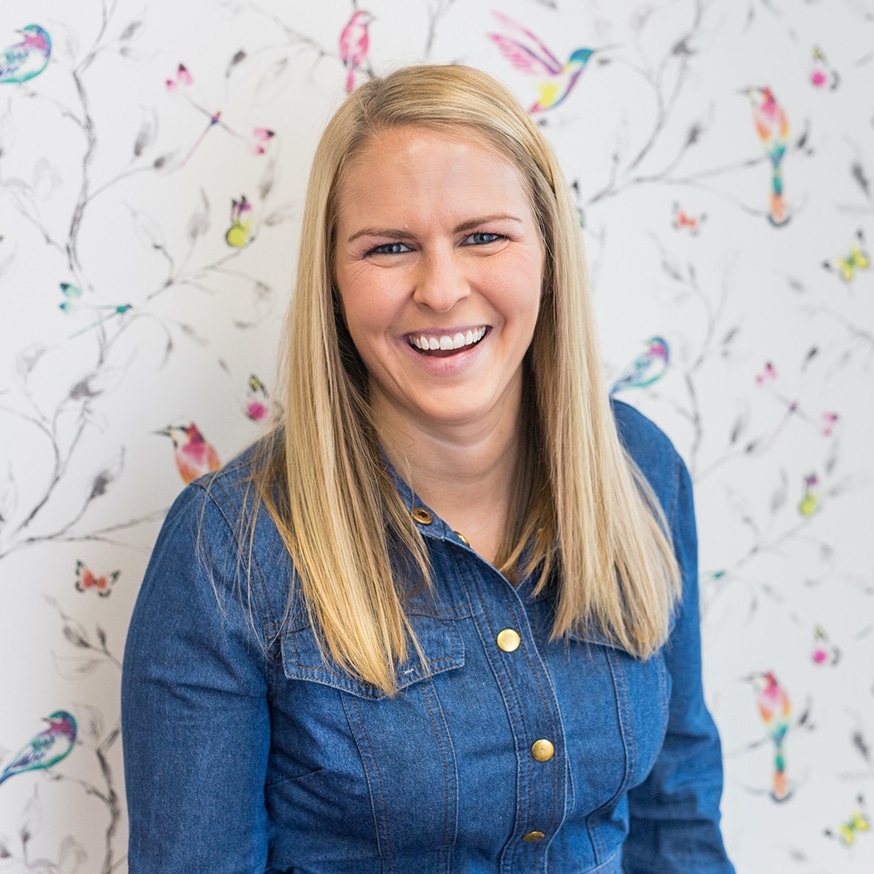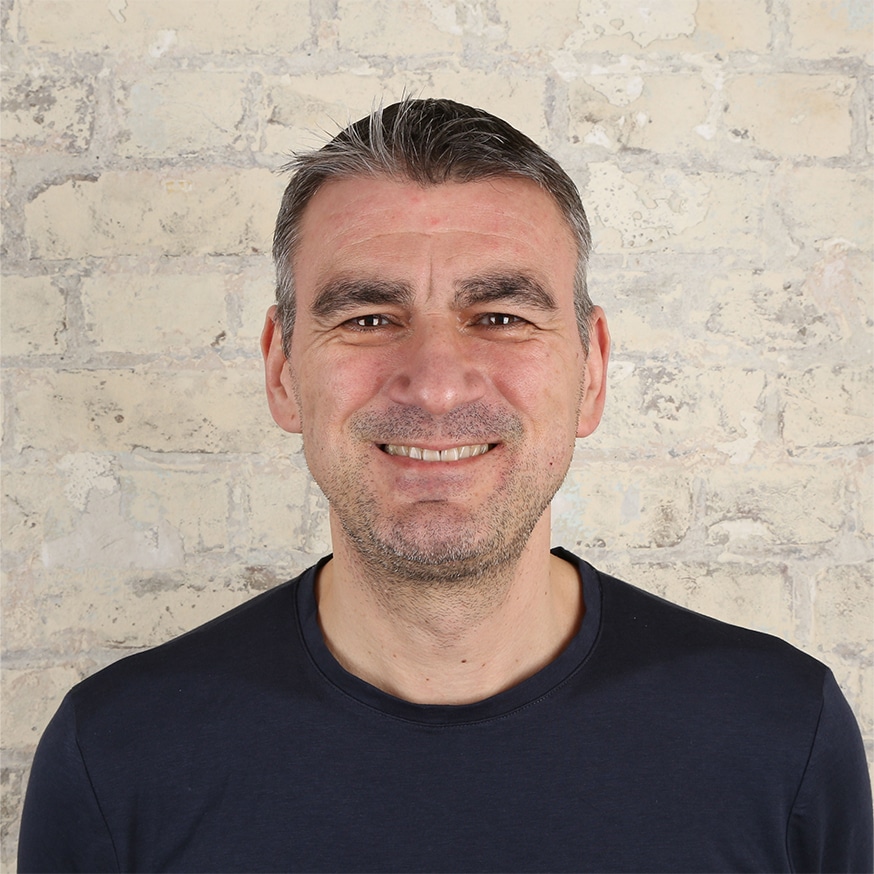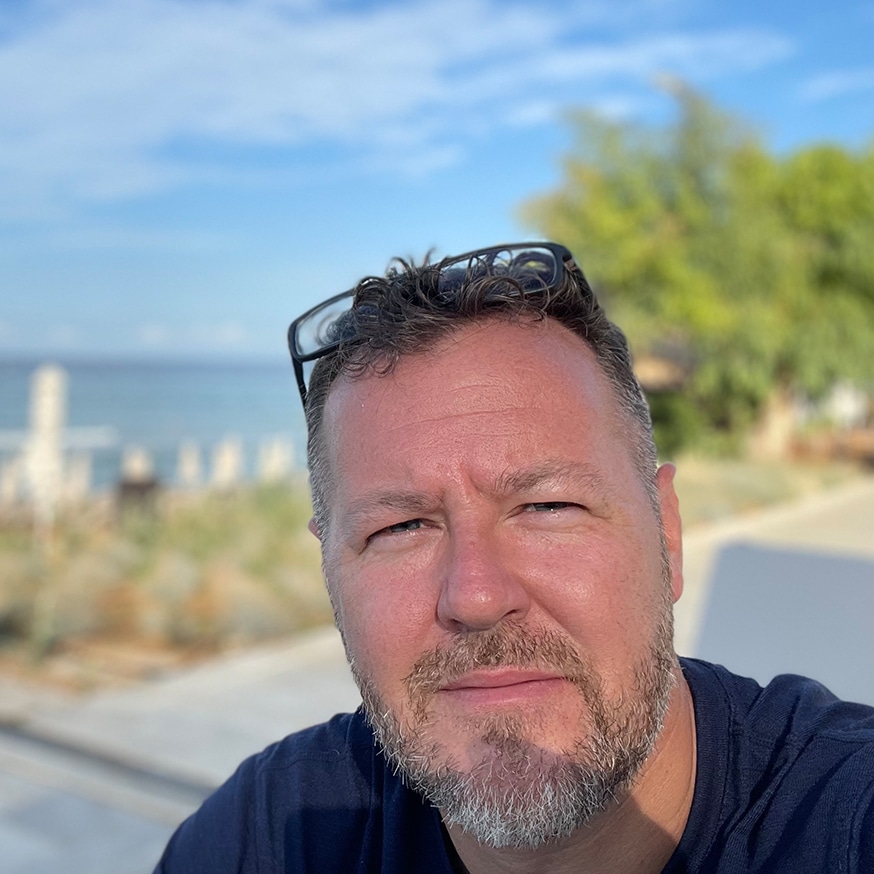
Get the right people on the bus
"They might still be the right people but the bus needs a bit of an MOT"
Jessica Gregson | Co-founder | Extra Brain
Questions:
> How would you explain what “get the right people on the bus” means?
> What do you think about this ‘advice’?
> Would you give this advice to other people?
> If not, what alternative advice would you give to agency leaders?
> Who do you think should own the vision in an agency?
> Jessica Gregson's favourite interview question
How would you explain what “get the right people on the bus” means?
In an agency context, I would explain it as finding people for your business who are adaptable, resilient, self-motivated and positive. The ‘right’ people buy into the team, the goals and the culture vs some very specific projects or clients that you have right now. If you said you were going to change the business direction in a month, they would immediately start helping to make the plans for the coming weeks, rather than worrying about what that means for their role today.
They are the people who have solutions, they can turn on a dime, are happy to try new ideas and do it all with a healthy dose of enthusiasm.
Getting ‘the right people on the bus’ means not compromising on who you employ and retain in your company - the ‘right’ people will be far more likely to get you over a hump and you’ll want to share success with them.
What do you think about this ‘advice’?
Like everything, it depends on the context and the current position of the business.
It's worth first asking, ‘do we know who the ‘right people’ are, for our business?’ ‘Has our idea of the ‘right people’ had the right amount of dispassionate analysis?’
It’s also worth considering if we even know what ‘the bus’ is (some sort of vision, or goal that will attract people to the bus - even if the direction changes).
Generally, people dish this out when hiring and firing… Hiring - the common challenge, that I connect with this advice, is ‘people who fit in’ vs people who are really right for business. You meet them, you like them, they seem a bit like everyone else. You hear ‘they would suit our culture/fit right into the team’ (this phrase terrifies me). All sorts of glaring errors in someone’s skills, experience and interview responses are overlooked when the interviewing team ‘like’ the candidate. This is also a hindrance, in many businesses, to getting diversity into your team. Make sure you have a very clear-eyed view of what ‘the right people’ means.
The messier end of the ‘people on the bus’ trope is when someone isn’t fulfilling their role as the company needs them to, or is perhaps disrupting other people and their success. If this person has previously been a star player - which happens more than you might think - the most common mistake, in my view, is that leadership doesn't take the time to understand why. There is every chance that the person hasn’t had a total character shift, more likely something in the company no longer lives up to their expectation. Clue; they might still be the right people but the bus needs a bit of an MOT…
I’m going to bang on a bit here, it’s not just if the advice is useful, it also depends if the person saying it has the requisite expertise to help you to ‘get the right people on the bus.’ This is a thing that is MUCH easier said than done, especially when many companies are struggling to find people at all - let alone the right people. Getting ‘the right people on (and off) the bus’ deserves focus - it needs a longer look at the business, its team strategy, clarity about what ‘the people’ get in return for getting aboard, and then implementation.
Would you give this advice to other people?
I have used these words, guilty as charged. Even if I don’t choose those words (or their original reference point), if you’re asking if I think that the right people (when they really are the right people) will help an agency to navigate the twists and turns of their journey - then yes, absolutely.
If not, what alternative advice would you give to agency leaders?
Hopefully, most of the considerations I would be discussing with agency leaders that I work with, are clear from my previous comments. But here it is… get clear on your overall goals, get clear on the role that your people play in them (and the benefit to them of being part of that). Get clear on the values you want everyone on the team to share (clue, this is different to finding people you like). Then, communicate regularly with your team (be clear on your expectations and get to understand theirs - even the inconvenient ones). Identify where you can better support your people in their roles, then listen to them, nurture them, make their working environment fun, constructive and rewarding (put this last bit on repeat). If you do this, and do it well, then your team will be happy to adapt and shift as the company evolves over the coming years.
Who do you think should own the vision in an agency?
Ultimately, there are probably some founder or board-level led objectives, sometimes even a fully-formed vision. Somewhere that, ultimately, the business is trying to get to. How much of a ‘vision’ that is, outside of a team presentation once or twice a year, depends on if it has any depth and is well defined and understood, and how much it wraps around everything that is done in the business.
When a vision, or even a set of goals, is clear it can belong to everyone (the holy grail right? But, I work with agencies who have this - it’s totally do-able). It becomes part of every decision made, each team member employed, each penny spent and each client who joins the business. It might take a while to get to, but when it’s right, it is owned by the team.
Jessica Gregson's favourite interview question
I don’t like the traditional interview process (not that I have a silver bullet to get rid of it), so this is a tough question. I think it’s wise to ask people about their own goals and view of their own future. That way you can try to get an understanding of where the role with your company fits in and how your values align with the things they want to achieve.
Jessica Gregson's full bio
Jessica Gregson is the founder of a cooperative for independent consultants called Extra Brain. They help leaders to quickly and easily grab some experienced thinkers when they have a sticky problem or amazing opportunity ahead. She has (for her sins) spent 22 years running and working with agencies, and is currently a Non Executive/Board Advisor for a number of global agencies with revenues ranging from £1 - £11 million.
Humble promo of Jessica Gregson and Extra Brain
I met Jessica in the early stages of building Polymensa and I am surprised we didn't meet earlier. True kindred spirits - in particular when it comes to Learning & Development at agencies. In fact so much so, the Polymensa and Extra Brain model is based on the same belief that you need multiple perspectives to reduce blind spots and find the knowledge that will be useful for your business - and actually work! Jessica is a great facilitator and advisor for agencies and if you're looking for another perspective on your agency challenges, definitely give Jessica Gregson a shout.
Cheersssss!
Daniel (Polymensa founder)
Explore other perspectives
Christopher Kenna
Founder @ Brand Advance Group
"Who's never caught that bus, because they don't know it exists?"
Andy Smith
Founder @ Strategiq
"Love it, but it has to be respected and understood before implementing"

The Rabbit Hole: Where to?
After spending the last 19 years of my life in the UK, what I know refer to as the 2nd chapter of my life (I grew up in Germany), I wanted to turn the page to chapter 3. In March 2022 my girlfriend and I decided to move to another country.
But where to?
Peak down the rabbit hole

Blindspot: Economics
I’m going to admit, that although I spend a significant amount trying to educate myself about economics, my knowledge would probably equate a tiny single atom in a pumpkin compared to a Keynes or Krugman.
It’s why I rely on people who study this everyday to give me an insight.
And although I don’t always understand what they’re on about, I thought this was one of the simplest explanations of how our economy functions and why we get this thing called inflation.
However, the BIG and far more important question to me is how much longer will this model work and exist. I look forward to a day where there is far less artificially generated demand - than truthfully necessary.
But for now, here are the basics of our current economic engine...
Watch the video






